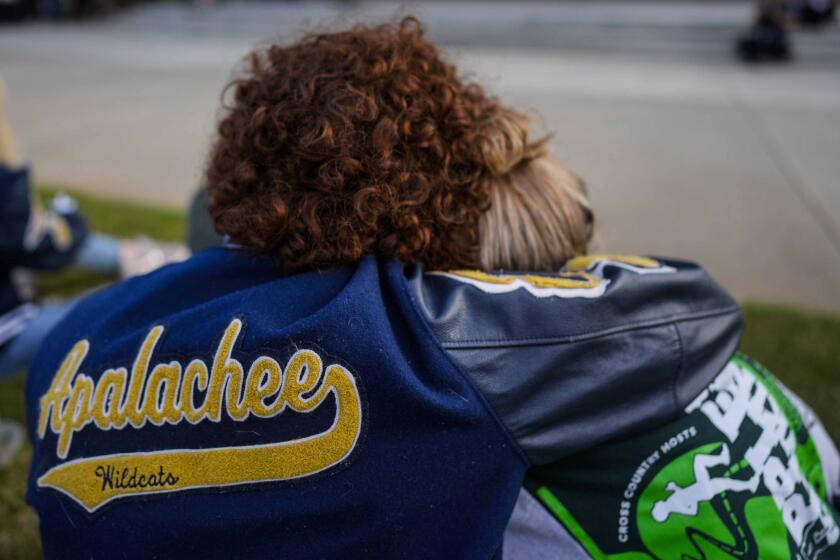Nakasone Vows to Weigh Aid to U.S. Minorities
WASHINGTON — Japanese Prime Minister Yasuhiro Nakasone, trying to atone for a remark that incensed blacks and other ethnic Americans last fall, met Saturday with members of the Congressional Black Caucus and a black business group, promising to consider financial aid to U.S. minorities.
The meeting, Nakasone’s final session before heading back to Japan after two days of meetings with President Reagan on trade problems, lasted 35 minutes. Among those attending were representatives of the Black Business Council, local government officials and Rep. Mickey Leland (D-Tex.), who said later that Nakasone agreed to support several black proposals. He said those included Japanese investments in minority-run U.S. banks, exchange programs between black American colleges and Japanese colleges and bringing Japanese firms to black neighborhoods.
“The meeting went very well,” said Albert L. Nellum, coordinator of the Black Business Council. “We were quite pleased with the tone of his comments.”
Nakasone flew to Hawaii Saturday for a brief vacation before returning to Japan, making a brief refueling stop in San Francisco.
‘Are of One Mind’
During his Saturday radio address from the White House, Reagan repeated his hope that he would soon be able to withdraw tariffs on electronic imports from Japan. He said that he and Nakasone “are of one mind about avoiding protectionist steps on either side of the Pacific.”
The proposals advanced by the black caucus are similar to the “covenants” that the Rev. Jesse Jackson negotiated with American corporations, such as Coca-Cola and Burger King, as head of the Chicago-based Operation PUSH (People United to Serve Humanity) several years ago. In those agreements, the U.S. companies agreed to offer franchises to minorities and to seek them out to provide certain services, such as banking.
The group meeting with Nakasone wanted the Tokyo government to donate $100 million to black colleges and to invest $20 million in minority-owned banks.
These demands stem from minority anger at a Nakasone speech last Sept. 22, when the prime minister said: “Japan is now a highly educated and fairly educated society. Much more so than America, on the average. In America, there are quite a few black people, Puerto Ricans and Mexicans. On the average, it is still very low.”
Difficult to Translate
Remarks in Japanese are sometimes difficult to translate precisely because sentence subjects are often only implied. The Japanese Foreign Ministry scrambled to put out a clarifying statement, asserting that Nakasone did not mean to offend, but blacks and Latinos were enraged.
Ronald W. Walters, a Howard University political science professor, was among those who picketed the Japanese Embassy here after the remarks were made, and he said he helped craft demands that laid the foundation for those discussed Saturday.
When asked about prospects for Nakasone’s offer to the group, Walters said, “I’d be surprised if he followed through because he doesn’t have to,” unless he is made to realize minorities have enough economic clout to harm sales of Japanese products in this country.
Walters noted that during Nakasone’s visit, the House passed a trade bill containing an amendment aimed at opening Japanese markets to U.S. goods.
“He’s already gotten slapped with the trade bill,” Walters said. “If he follows through on the agreement with black Americans, people back home would call him a loser financially.”
Willing to Forgive
Nevertheless, the participants in the meeting said Nakasone convinced them he would do just that, and members of the delegation said they are willing to forgive.
“Obviously, the prime minister has been made very sensitive about the concerns of ethnic Americans in this country,” Leland said.
More to Read
Sign up for Essential California
The most important California stories and recommendations in your inbox every morning.
You may occasionally receive promotional content from the Los Angeles Times.








